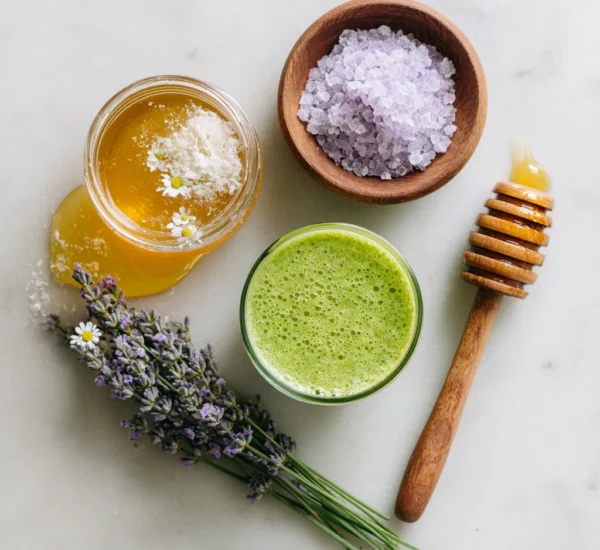Simple Techniques to Reduce Daily Stress: A Comprehensive Guide
Stress has become an unwelcome companion in our modern lives. From work deadlines to personal responsibilities, the pressures we face can feel overwhelming. Fortunately, there are simple, effective techniques you can incorporate into your daily routine to manage and reduce stress levels. This comprehensive guide will explore ten proven methods to help you cultivate a calmer, more balanced life.

Understanding the Nature of Stress
Before diving into the techniques, it’s crucial to understand what stress is and how it affects us. Stress is a natural response to demands and pressures. When we perceive a threat, our bodies release hormones like cortisol and adrenaline, preparing us for “fight or flight.” While this response is helpful in acute situations, chronic stress can have detrimental effects on our physical and mental health. It can contribute to anxiety, depression, heart disease, digestive problems, and weakened immunity.
Therefore, proactive stress management is essential for overall well-being. The following techniques offer practical strategies to help you regain control and navigate stressful situations with greater ease.
Ten Practical Techniques for Stress Reduction
This section details ten actionable strategies you can implement to mitigate daily stress. They range from physical activities to mindfulness practices, offering a diverse toolkit for managing your well-being.
1. Deep Breathing Exercises
Deep breathing is a powerful, yet simple, technique to instantly calm the nervous system. When we’re stressed, our breathing tends to become shallow and rapid. Deep breathing counteracts this by activating the parasympathetic nervous system, which promotes relaxation.
- How to Practice: Find a comfortable position, either sitting or lying down. Inhale slowly and deeply through your nose, allowing your belly to expand. Hold the breath for a few seconds, then exhale slowly and completely through your mouth. Repeat this process for 5-10 minutes, focusing on the sensation of your breath.
- Benefits: Reduces heart rate, lowers blood pressure, and promotes a sense of calm.
2. Regular Physical Activity
Exercise is a fantastic stress reliever. Physical activity releases endorphins, which have mood-boosting effects. It also helps to redirect your focus away from stressors and can improve sleep quality.
- How to Practice: Aim for at least 30 minutes of moderate-intensity exercise most days of the week. This could include brisk walking, jogging, swimming, cycling, or dancing. Find an activity you enjoy to make it a sustainable habit.
- Benefits: Improves mood, reduces anxiety, enhances sleep, and boosts overall physical health.
3. Mindfulness Meditation
Mindfulness meditation involves focusing your attention on the present moment without judgment. It allows you to observe your thoughts and feelings without getting caught up in them.
- How to Practice: Find a quiet space and sit comfortably. Close your eyes and focus on your breath. When your mind wanders, gently redirect your attention back to your breath. You can also use guided meditations to help you stay focused. Many apps offer guided meditation sessions.
- Benefits: Reduces anxiety, improves focus, promotes emotional regulation, and cultivates a sense of inner peace.
4. Progressive Muscle Relaxation
Progressive muscle relaxation (PMR) is a technique that involves tensing and relaxing different muscle groups in your body. This process helps you become more aware of physical tension and release it.
- How to Practice: Lie down in a comfortable position. Starting with your toes, tense the muscles in that area for 5-10 seconds, then release the tension. Repeat this process for each muscle group, working your way up your body to your head.
- Benefits: Reduces muscle tension, lowers blood pressure, and promotes relaxation.
5. Time Management Strategies
Poor time management can contribute significantly to stress. Feeling overwhelmed by tasks and deadlines can create a sense of anxiety and pressure. Implementing effective time management strategies can help you regain control of your schedule and reduce stress.
- How to Practice: Prioritize tasks using methods like the Eisenhower Matrix (urgent/important). Break down large tasks into smaller, more manageable steps. Use a planner or calendar to schedule your activities and set realistic deadlines. Delegate tasks when possible. Avoid procrastination.
- Benefits: Reduces feelings of overwhelm, increases productivity, and promotes a sense of control.
6. Prioritize Sleep
Sleep deprivation can exacerbate stress levels. When you’re sleep-deprived, your body produces more stress hormones, making it harder to cope with daily challenges.
- How to Practice: Aim for 7-9 hours of quality sleep each night. Establish a regular sleep schedule by going to bed and waking up at the same time each day, even on weekends. Create a relaxing bedtime routine, such as taking a warm bath, reading a book, or listening to calming music. Ensure your bedroom is dark, quiet, and cool.
- Benefits: Improves mood, enhances cognitive function, strengthens the immune system, and reduces stress.
7. Practice Gratitude
Focusing on the positive aspects of your life can significantly reduce stress and improve your overall well-being. Gratitude shifts your attention away from negative thoughts and feelings, fostering a more optimistic outlook.
- How to Practice: Keep a gratitude journal and write down things you are grateful for each day. This could include simple things like a beautiful sunset, a kind gesture from a friend, or a delicious meal. You can also express gratitude to others by telling them how much you appreciate them.
- Benefits: Improves mood, reduces negative emotions, enhances relationships, and promotes resilience.
8. Connect with Others
Social connection is a vital buffer against stress. Spending time with loved ones, talking to friends, or engaging in social activities can provide emotional support and reduce feelings of isolation.
- How to Practice: Make time for regular social interactions. Schedule phone calls or video chats with friends and family. Join a club or group that aligns with your interests. Volunteer in your community.
- Benefits: Provides emotional support, reduces feelings of loneliness, and promotes a sense of belonging.
9. Limit Screen Time
Excessive screen time, especially before bed, can disrupt sleep and increase stress levels. The blue light emitted from electronic devices can interfere with the production of melatonin, a hormone that regulates sleep.
- How to Practice: Set limits on your daily screen time. Avoid using electronic devices for at least an hour before bed. Use blue light filters on your devices or wear blue light-blocking glasses. Engage in relaxing activities instead of screen time, such as reading a book or taking a bath.
- Benefits: Improves sleep quality, reduces eye strain, and promotes relaxation.
10. Practice Self-Compassion
Self-compassion involves treating yourself with the same kindness and understanding that you would offer to a friend who is struggling. It means acknowledging your imperfections and accepting yourself as you are.
- How to Practice: When you're feeling stressed or overwhelmed, remind yourself that everyone makes mistakes and experiences difficulties. Treat yourself with kindness and understanding. Practice self-care activities, such as taking a relaxing bath, going for a walk, or doing something you enjoy.
- Benefits: Reduces self-criticism, promotes self-acceptance, and fosters emotional resilience.
Creating a Stress-Resilient Lifestyle
Integrating these techniques into your daily routine is a crucial step towards building a stress-resilient lifestyle. However, remember that stress management is not a one-size-fits-all approach. Experiment with different techniques to find what works best for you. Be patient with yourself, and don’t expect to eliminate stress completely. The goal is to manage it effectively and prevent it from overwhelming you.
Consider making small, gradual changes to your lifestyle. Start by incorporating one or two techniques into your daily routine and gradually add more as you become comfortable. Consistency is key. The more consistently you practice these techniques, the more effective they will become.
When to Seek Professional Help
While these techniques can be highly effective for managing daily stress, it’s important to recognize when professional help is needed. If you’re experiencing persistent or overwhelming stress that is interfering with your daily life, consider seeking support from a therapist, counselor, or other mental health professional. They can provide you with personalized strategies and support to manage your stress and improve your overall well-being. Some signs that it may be time to seek professional help include:
- Difficulty sleeping or eating
- Persistent feelings of sadness or anxiety
- Loss of interest in activities you used to enjoy
- Difficulty concentrating
- Feeling overwhelmed or hopeless
- Thoughts of self-harm
Remember that seeking help is a sign of strength, not weakness. Taking care of your mental health is just as important as taking care of your physical health.

Frequently Asked Questions (FAQs)
Here are some frequently asked questions related to stress reduction techniques.
Q: How quickly can I expect to see results from these techniques?
A: The timeline for seeing results varies depending on the individual and the technique. Some techniques, like deep breathing, can provide immediate relief. Others, like regular exercise or mindfulness meditation, may take weeks or months to produce noticeable changes. Consistency is key.
Q: Are these techniques effective for all types of stress?
A: These techniques are generally effective for managing daily stress and improving overall well-being. However, they may not be sufficient for managing severe or chronic stress. In such cases, professional help may be necessary.
Q: Can I combine these techniques?
A: Absolutely! Combining these techniques can be highly effective. For example, you could practice deep breathing during a stressful situation, followed by a short meditation session. Experiment to find what works best for you.
Q: How much time do I need to dedicate to these techniques each day?
A: The amount of time you dedicate to these techniques will vary depending on your individual needs and preferences. Even dedicating just a few minutes each day can make a significant difference. Start small and gradually increase the amount of time as you become more comfortable.
Q: What if I find it difficult to relax?
A: It’s common to find it difficult to relax, especially when you’re feeling stressed. Be patient with yourself and don’t get discouraged. Try different techniques to find what works best for you. You can also seek guidance from a therapist or counselor.
Q: Are there any side effects to these techniques?
A: These techniques are generally safe and have few side effects. However, some people may experience temporary discomfort or anxiety when starting new practices, such as meditation. If you experience any negative side effects, discontinue the technique and consult with a healthcare professional.
Q: What other lifestyle changes can help reduce stress?
A: Other lifestyle changes that can help reduce stress include eating a healthy diet, limiting caffeine and alcohol consumption, spending time in nature, and engaging in hobbies and activities you enjoy.
By consistently incorporating these simple techniques into your daily routine, you can cultivate a calmer, more balanced life and effectively manage the inevitable stressors that come your way. Remember, prioritize self-care and seek professional help when needed.



